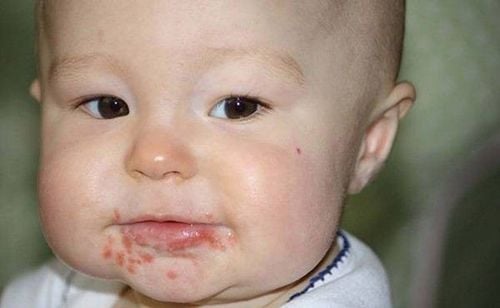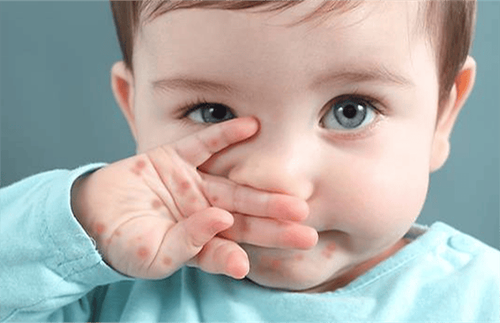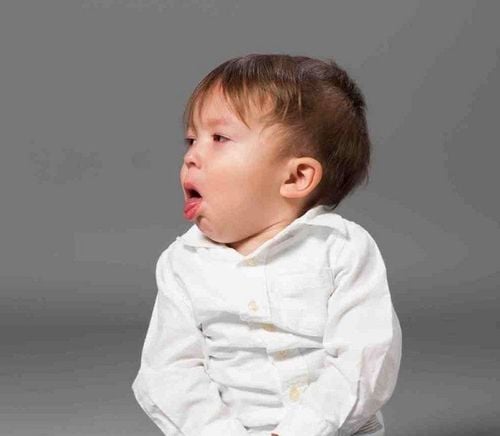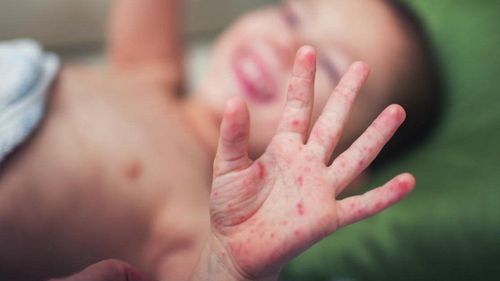This is an automatically translated article.
The article was professionally consulted with Master, Doctor Tran Mai Phuong - Pediatrician - Department of Pediatrics - Neonatology, Vinmec Central Park International General Hospital.When infected with hand, foot and mouth disease, the clear water bubbles will gradually turn cloudy. If not handled properly, hand, foot and mouth disease can easily progress to severe complications, which can even lead to death.
1. Expression of blisters when infected hand, foot and mouth
The earliest manifestations of hand, foot and mouth disease in children are low-grade fever, anorexia, and fatigue. In 1 to 2 days, a skin rash appears as erythematous nodules, several millimeters in diameter, that stand out against the background of normal skin, then become vesicles.Lesions in the oral cavity have the form of ulcers, with a diameter of 4 - 8 mm, often appearing on the inside of the mouth, on the tongue, on the roof of the mouth and on the gums, causing pain when swallowing food and water. . With this symptom, parents often confuse with symptoms of common mouth ulcers.
Hand-foot-and-mouth blisters on the skin mainly on the palms, soles, legs, or arms. Infants may develop a papule-like rash on the buttocks, where diapers are worn. In the acute stage, in addition to the above-mentioned signs, sometimes the disease will be accompanied by other symptoms, such as sore throat, lymphadenopathy in the neck and under the jaw, cough, runny nose, vomiting, diarrhea.
In some cases in the advanced stage, the pathogenic virus (mainly Coxsackie A or Enterovirus) invades the central nervous system, leading to symptoms related to cognitive disturbances, such as lethargy. , lethargy, delirium, convulsions. In case of severe hand, foot and mouth disease, the child may die or after a period of treatment and recovery, the child still has persistent mental disorders.
When infected hand, foot and mouth, the initial blisters with clear fluid will turn cloudy. With proper treatment and care, the blisters will heal and leave no scars. However, if not treated properly, the disease can progress seriously, causing very dangerous complications such as sepsis, meningitis, encephalitis, and myocarditis. In particular, brain complications are very likely to lead to death.
2. Take care of children with hand, foot and mouth disease at home to prevent superinfection
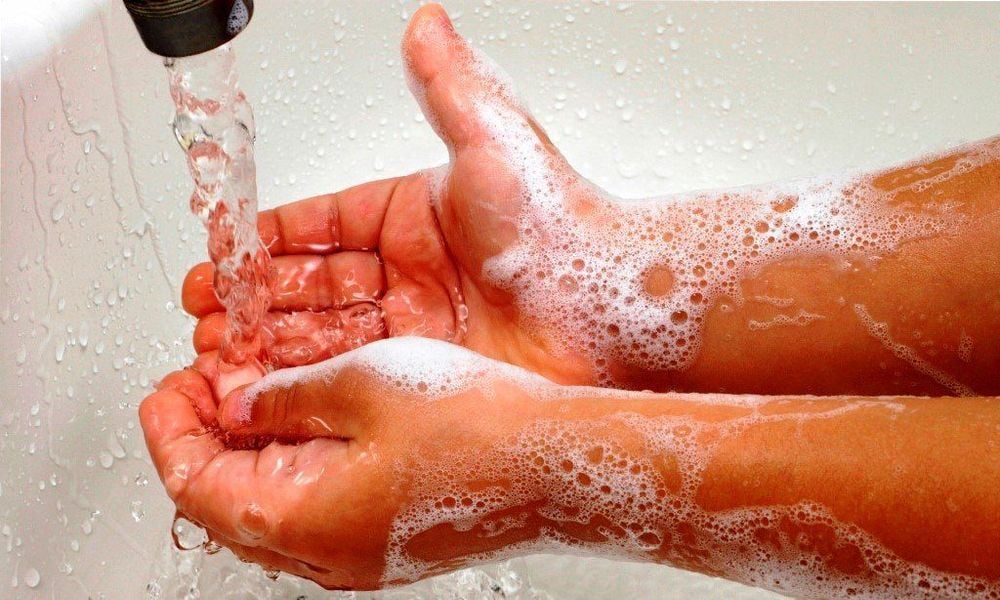
Rửa tay bằng xà phòng để hạn chế nguy cơ bội nhiễm tay chân miệng
2.2. Maintain personal hygiene Wash your hands with soap to limit the risk of hand, foot and mouth infection. Give your child a bath every day with soap and clean water. Teach children the habit of washing hands properly, especially before and after eating to prevent re-infection through the hand - mouth.
Clothes and diapers of sick children should be soaked with an antiseptic solution or hot water before washing. Wash the sick child's clothes separately from other children. Children's eating and drinking utensils, such as bottles, glasses, cups, spoons, towels... should be disinfected and used separately for each child.
Parents absolutely must not let the child abstain from bathing, abstain from the wind, do not incubate the child too carefully, do not perform acts of stinging, squeezing to make the hand, foot and mouth water bubble burst. This is a misconception that makes hand, foot and mouth disease worse and is the shortest way to a life-threatening bacterial superinfection.
2.3. Medicines In all cases, take your medications only as prescribed and under the professional guidance of your doctor.
The use of drugs is mainly to overcome symptoms. Give your child enough fluids if he has a high fever. Regularly use an antiseptic solution to clean your mouth. At the site of skin lesions, an antiseptic solution can be applied to avoid the risk of superinfection. If possible, have your child gargle regularly with dilute salt water.
When there is a superinfection, the child should be examined and given antibiotics according to the doctor's prescription. Take the child for a follow-up visit every 2 days, continuously for the first 8-10 days of illness.
2.4. Proper nutrition
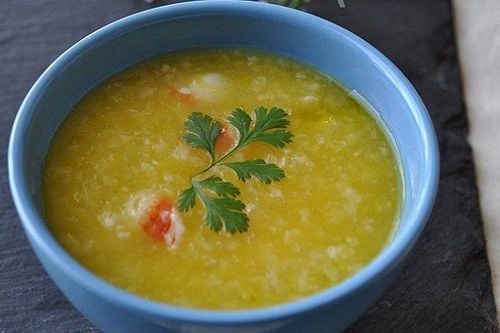
Cháo sườn bí đỏ - một món ăn dinh dưỡng cho trẻ bị tay chân miệng
If the child refuses, does not want to eat, should not force the child to eat anymore because the child may cry, vomit. Instead, parents can compensate with a glass of cool milk, flan or juice. After eating, let the child rinse his mouth clean and let it rest (completely fast) for about 3-4 hours, then give the next meal. Should increase the intake of vitamins and minerals (as prescribed by the doctor).
Most cases of hand, foot and mouth disease are mild and only cause fever for a few days. However, parents need to pay attention to signs of hand-foot-and-mouth disease, when the blister turns from clear to cloudy, to take the baby to the doctor for examination, treatment and appropriate care.
Pediatrics department at Vinmec International General Hospital is the address for receiving and examining diseases that infants and young children are susceptible to: viral fever, bacterial fever, otitis media, pneumonia in children, .... With modern equipment, sterile space, minimizing the impact as well as the risk of disease spread. Along with that is the dedication from the doctors with professional experience with pediatric patients, making the examination no longer a concern of the parents.
Pediatrics department at Vinmec International General Hospital is the address for receiving and examining diseases that infants and young children are susceptible to: viral fever, bacterial fever, otitis media, pneumonia in children, .... With modern equipment, sterile space, minimizing the impact as well as the risk of disease spread. Along with that is the dedication from the doctors with professional experience with pediatric patients, making the examination no longer a concern of the parents.
Please dial HOTLINE for more information or register for an appointment HERE. Download MyVinmec app to make appointments faster and to manage your bookings easily.




